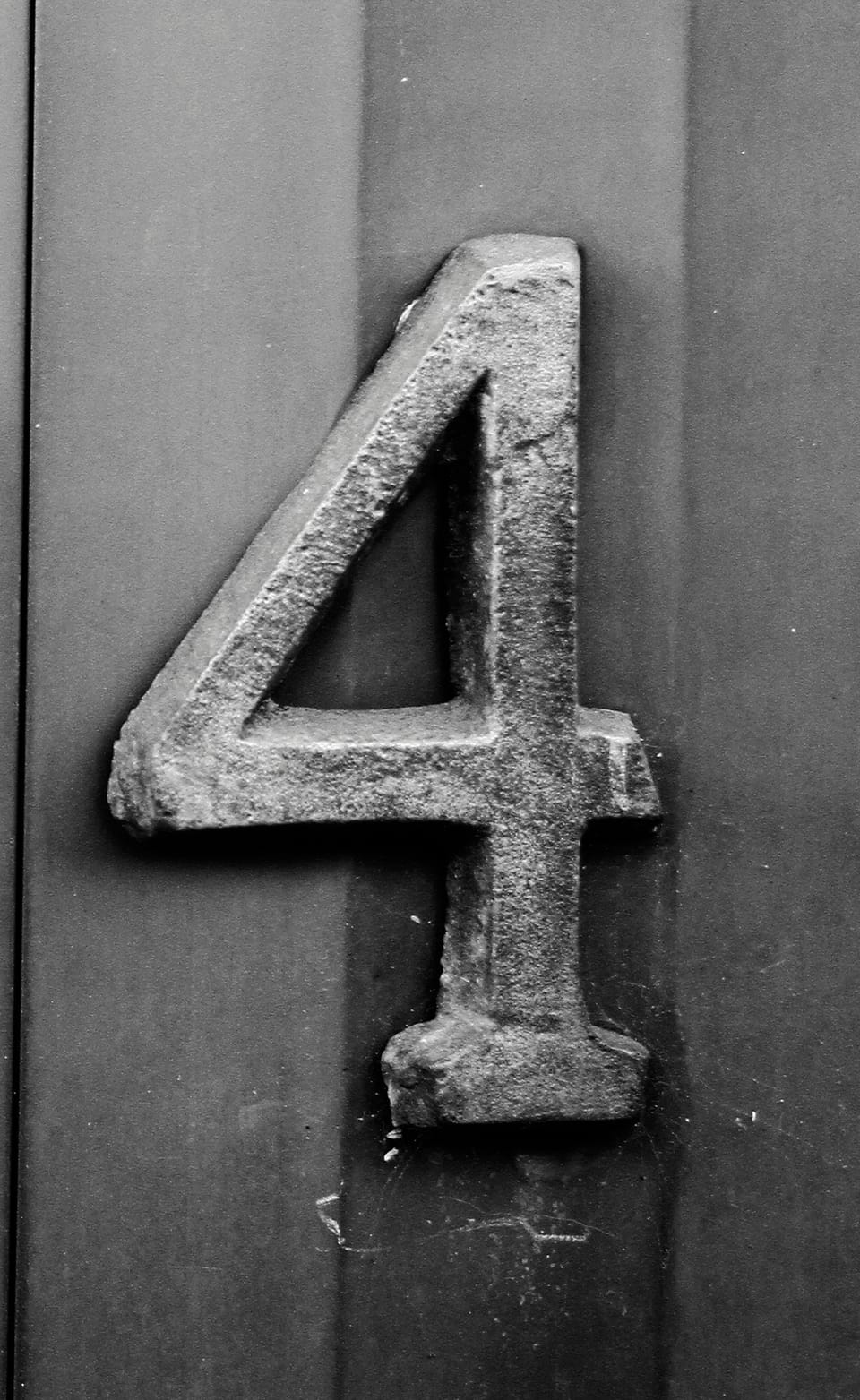
Four Things To Read
Ukraine, by Dovid Hofshteyn, by Daniel Kraft: “Hofshteyn was born near Kyiv, Ukraine, and came from a family of artists. He was descended from Pedotser, the stage name of Aron-Moyshe Kholodenko, a violinist and composer who was one of the 19th century’s great klezmer virtuosos; his younger sister, Shifre Kholodenko, was also a renowned poet and translator; his cousin Osher Shvartsman, was a highly influential modernist Yiddish poet, particularly known for his war poetry, and became a Soviet icon after dying as a hero in the Red Army, in 1919. Hofshteyn himself had a complicated relationship to the communist regime. He supported it at first, moving to Moscow in 1920, writing for the communist Yiddish press and leading the realist Yiddish theater movement. But in 1924, Hofshteyn — who had been educated in Russian and Hebrew — publicly called for the teaching of Hebrew in Russia. Hebrew had no place in Soviet ideology, and after being what we might anachronistically call “cancelled,” Hofshteyn moved to Palestine for several years, struggling for work there, before returning to Kyiv.” The poem this text contextualizes is well-worth reading. Hofshteyn has apparently been undergoing a revival in Ukraine as part of the cultural resistance to the Russian invasion. (And for the poets among my readers, I just love Daniel Kraft’s definition of rhyme as “a kind of implicit argument of kinship between two words or two ideas.”)
Man admits participating in ‘castration by clamping’ incidents, by Emine Sinmaz: “The defendants are said to have been part of a society in which people willingly undergo extreme body modification. The practice is linked to a subculture in which men become ‘nullos’ – short for genital nullification – by having their penis and testicles removed.” On the one hand the title and the quote would seem to speak for themselves, but—and I have no idea if the connection I am making here is real or an accident of discursive circumstance—the next piece offers a perspective I never would have imagined.
If One Part Suffers, by Michelle Orange: “BID, body integrity dysphoria, is rare. Though experts are reluctant to estimate its prevalence, it is believed that at least a thousand people globally have the disorder. Medical recognition of the condition is growing, and its addition to the World Health Organization’s International Classification of Diseases (ICD) took effect last year. The ICD defines BID as ‘an intense and persistent desire to become physically disabled in a significant way’—to become, for example, a major-limb amputee, paraplegic, or blind—’with onset by early adolescence accompanied by persistent discomfort, or intense feelings of inappropriateness’ regarding one’s body.” This article, which at least potentially put the guys written about in the previous piece in a whole new context, traces the story of one man with BID, and it gets into some pretty interesting political territory as well: “Glancingly over the years, and recently, the political right wing has identified the disorder as a more specific beacon: a representation of the risks supposedly opened up by the freedom to express different gender identities and to modify one’s body accordingly, citing the affliction as evidence that trans rights and gender-affirming care are the first stops along a slippery slope.”
Behind the New Iron Curtain, by Marzio G. Mian, Translated by Elettra Pauletto: “It seems implausible, in the age of social media, that so little should be known about the country that has shattered the international order, but the shadows surrounding Russia have only grown since the days of the Soviet Union. Of course, it is one thing to observe the country from the outside; it is another to try to understand how Russians experience the war and react to sanctions from within, and what they hope the future holds. If Russia seems to have become another planet, it is largely because its regime has also waged war on foreign journalists, preventing them from straying beyond established perimeters.” A piece about Russia that would have been nearly impossible for an American to write, given the current politics between the two countries, that also demonstrates the importance of translation in giving us access to texts we would not otherwise be able to read.
Thanks for reading It All Connects...! Subscribe for free to receive new posts and support my work.
Four Things To See
Wassily Kandinsky (1866-1944) is known as one of the first pioneers of modern abstract art. He employed geometry, abstract colors, and abstract forms in his artworks. He believed that art can be used to express the “inner life” of an artist.
Untitled (1916)
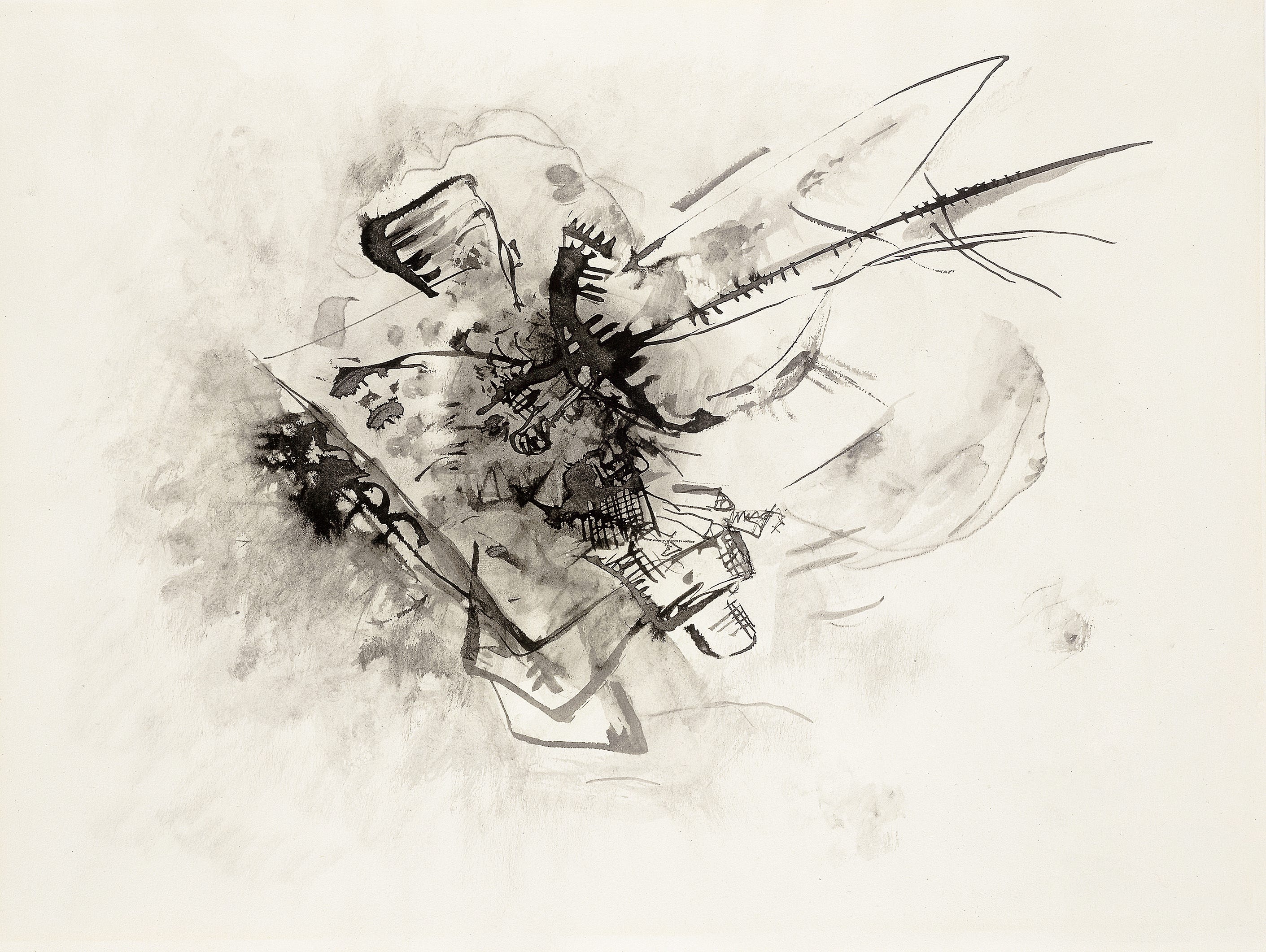
Painting with Green Center (1913)
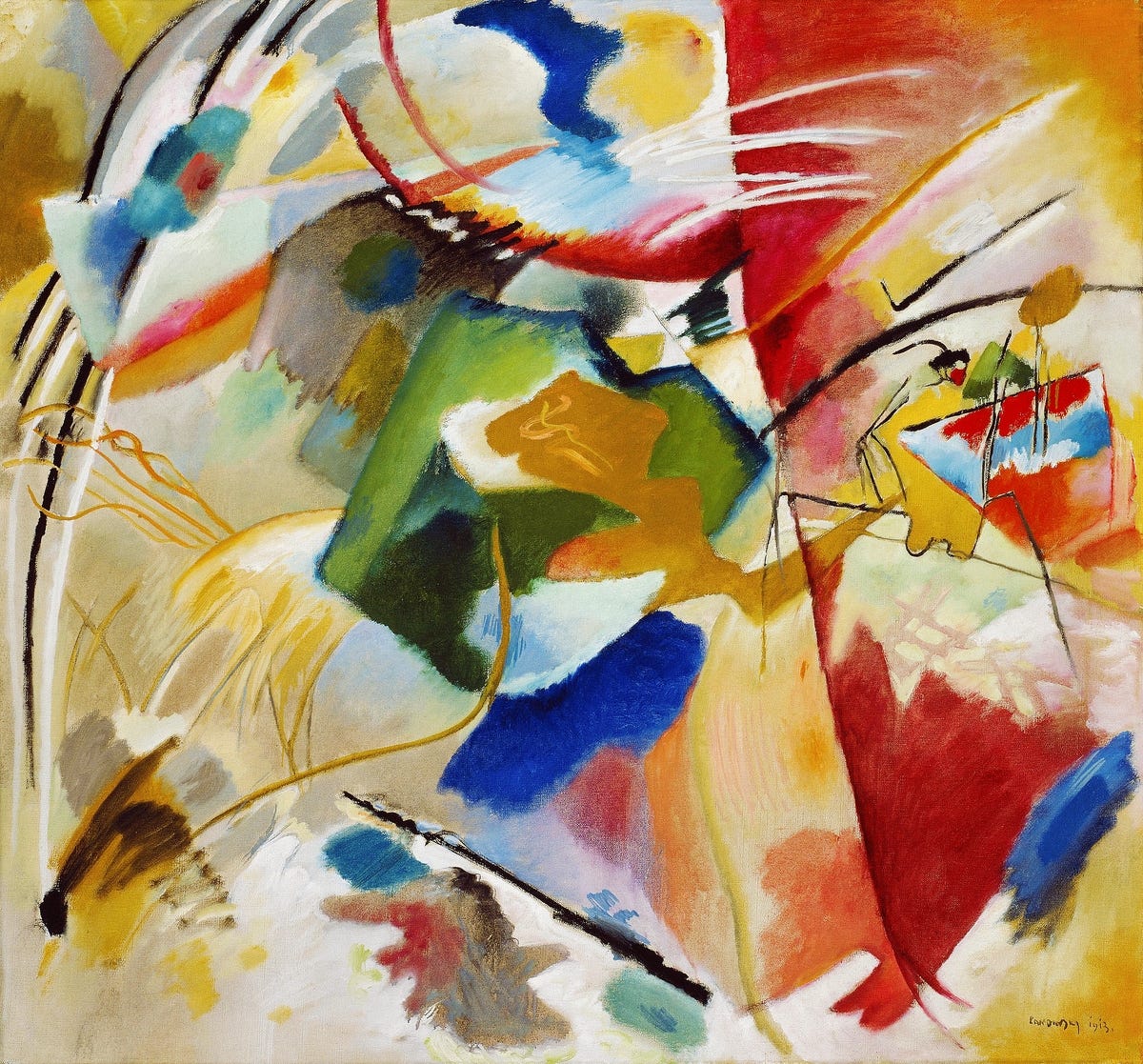
Free Curve to the Point: Accompanying Sound of Geometric Curves (1925)
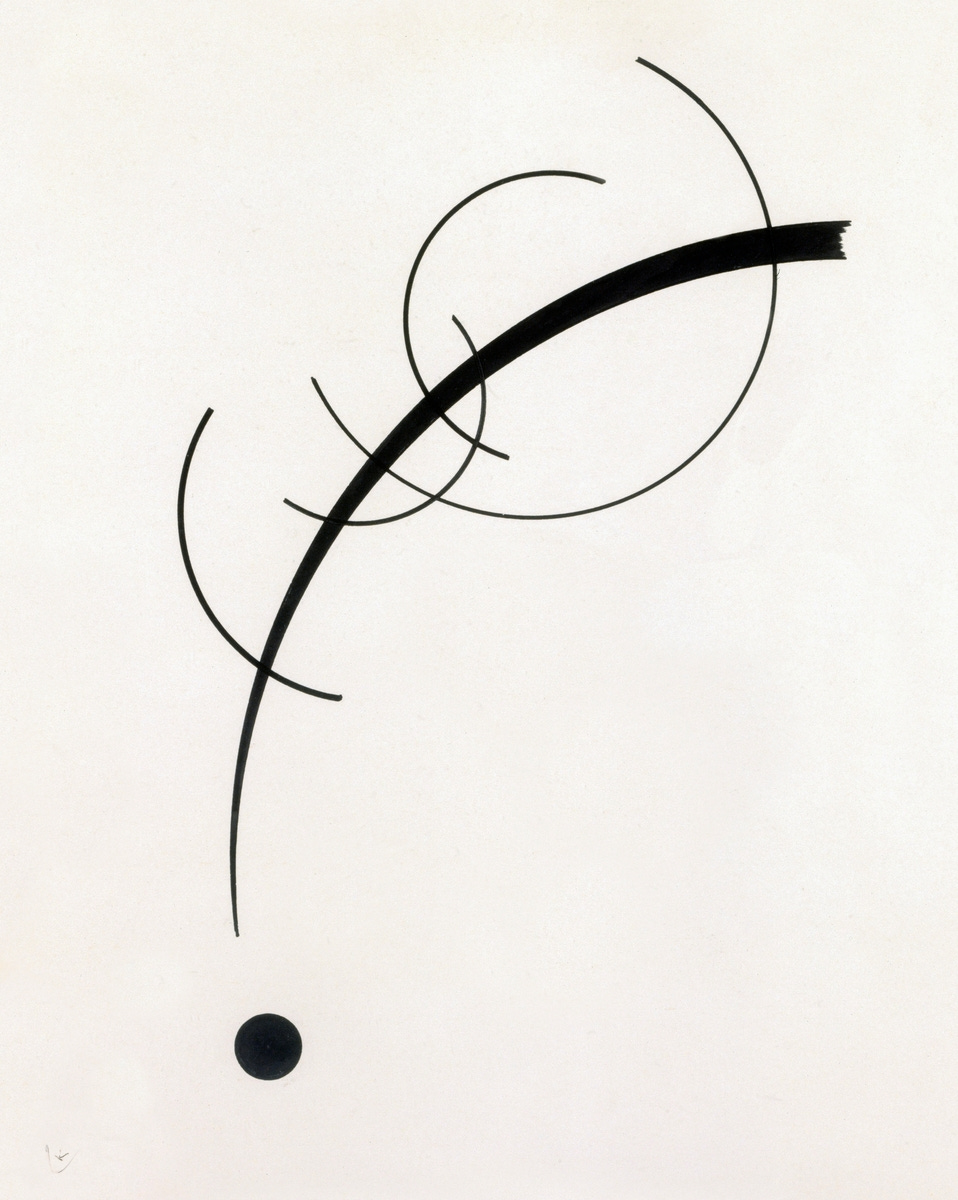
Landscape with Two Poplars (1912)

Four Things To Listen To
Buena Vista Social Club - Chan Chan
Climax - Precious and Few
Rachmaninoff’s Piano Concerto #3 - First Movement
Amadou & Mariam - Senegal Fast Food
Four Things About Me
Popcorn has been my comfort food going all the way back to my undergraduate days. I was a horrible procrastinator when it came to writing papers, often pulling one or two almost-all-nighters right before a paper was due. I’d make myself a huge bowl of popcorn and head down to the study room in our dorm to write. This, as you can imagine, was long before computers, but I did have an electric typewriter my mother gave me, with enough memory to auto-erase—using a ribbon that also had white out—an entire line of text. It was, at the time, top of the line technology, and I was very glad to have it.
During my sophomore and junior years, my roommate’s name was also Richard. We played Dungeons & Dragons with some other guys in the dorm—I was the DM, the dungeon master—and, in keeping with that pursuit, we put a sign up on the outside of our door, though I don’t remember if it said Riches Lie Beyond This door! or Riches Lie Within!
My first girlfriend’s name was Sandy. I was twelve; she was thirteen. We became known as a couple when she put her head on my shoulder at a Mets game to which a friend’s father had taken a group of us kids. (That was a big deal back then.) Sandy was skinny, with blond hair and a narrow, angular face. She’d been born with a heart defect that, she told me one day when we were hanging out in her family’s apartment, she knew was going to kill her. I don’t remember the nature of the defect or much about the conversation in which she told me, only that she told me and that, at twelve-years-old, I was not ready to handle that kind of knowledge. I also don’t remember anyone telling me when she went into the hospital for the last time, only that, after she died, her brother stopped speaking to me because I never went to visit her. Now, of course, I wish I had.
Leaning against the wall in our foyer is the Fuji 10-speed racing bike that I bought more than forty years ago, when I was an undergraduate student and didn’t have a car. (I didn’t even have my driver’s license yet.) During the school year, weather permitting, I used the bike to go back and forth to my job as an adviser for the youth group at a nearby synagogue. I had the bike refurbished so my wife and I could go biking on one of the trails not far from where we live and, up until the pandemic shutdown, we went almost every weekend during the summer. I miss it. *We* miss it. Hopefully, we’ll be able to start up again this summer.
You are receiving this newsletter either because you have expressed interest in my work or because you have signed up for the First Tuesdays mailing list. If you do not wish to receive It All Connects, simply click the Unsubscribe button below.
Photo of #4 by Antonio Piña on Unsplash
Thanks for reading It All Connects...! Subscribe for free to receive new posts and support my work.
It All Connects is for anyone who grapples with complexity—of identity, art-making, culture, or conscience—to make a difference in their own life and, potentially, in the life of their community.
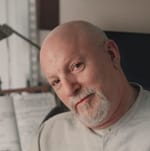





Member discussion